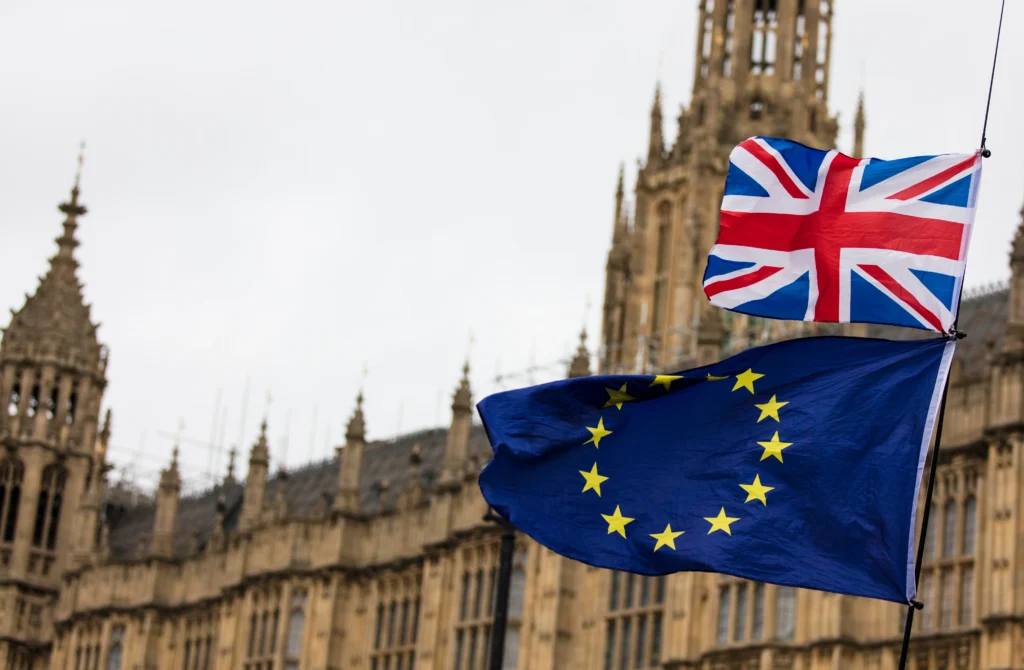Born and raised on a council estate in Stockport, Angela Rayner’s early life was steeped in hardship. She left school at 16, pregnant and without qualifications. Yet, through sheer grit and determination, she earned qualifications while working as a care worker and became active in the Labour Party as a UNISON branch rep. Her breakthrough came in the 2015 general election, when she won the safe Labour seat of Ashton-under-Lyne
Rayner quickly rose through the ranks. She held shadow cabinet roles including Shadow Education Secretary and Shadow Secretary for Future of Work under Jeremy Corbyn’s leadership, demonstrating a blend of personal experience and pragmatic socialism and has served on Labour’s National Executive Committee. By 2020, she was elected Deputy Leader of the Labour Party with a strong 52% mandate – Rayner’s rising star was now in the spotlight.
The Voice of Working-Class Labour
Rayner is a rare blend of populist authenticity and political skill, positioning herself as the relatable, working-class conscience of New Labour. Frequently likened to “John Prescott in a skirt,” she became more accessible to everyday voters in contrast to the more serious and formal nature of Keir Starmer. Her journey from experiencing food insecurity and stigma firsthand to advocating for workers’ rights and social justice resonated powerfully with Labour’s base. She pledged reforms like protections for zero-hours workers and the Employment Rights Bill, aligning her with both grassroots activists and Trade Unions.
In September 2023, Starmer elevated her to a high-profile brief: Shadow Levelling-Up, Housing, and Communities Secretary. Rayner’s appointment was seen as a strategic move to energise Labour’s messaging to the “Red Wall” seats and working class voters we had to win back. During this period there were question marks about her role and endless rumours about a difficult relationship with Keir Starmer. But not to be underestimated, Rayner held her ground and the most senior role in the Shadow Cabinet, ensuring traditional Labour policies like the New Deal for Working People were front and centre of Labour’s offer to voters.
Resignation, Fallout, and Legacy
Despite her ability to connect with our traditional base and huge popularity with Labour members, on 5 September 2025, Angela was forced to resign as Deputy Prime Minister, Deputy Leader of the Labour Party, and Housing Secretary following a damning ethics report concluding she had failed to meet the highest standards of conduct due to underpaid stamp duty on a property. Although the Report did state that she fully cooperated with the inquiry and that the issue was a mistake rather than a deliberate attempt to evade tax. Angela’s willingness to waiver confidentiality demonstrated her willingness to be transparent.
She expressed “deep regret” and said she had “taken full responsibility” for the error, citing complex family circumstances and the absence of specialist tax advice. Many people in the country will be able to relate to this, as many families nowadays are very complex with a variety of living arrangements. Despite her apology, the fallout was swift. Senior figures described her departure as catastrophic for Labour, calling it a “disaster,” particularly given her status as a working-class conscience. The party must now face a contest for the Deputy Leadership.
Labour’s Future
With any major internal election there is the potential for internal tensions to emerge and the accelerated nomination window has already prompted accusations from the left of a “stitch-up.” It is important that popular working-class voices and priorities are front and centre of the campaign as the government seeks to reconnect with our base.There are fears that Angela’s departure could also weaken Labour’s pro-worker credentials. Trade unions like Unite have voiced concern that key protections such as the ban on zero-hours contracts may now be watered down, and business opposition to the Employment Rights Bill is no secret. Just this week the government has confirmed it won’t u-turn on the Employment Rights Bill, but it will need authentic voices like Angela’s that can keep selling them to the public.
While all this is happening, Labour is facing mounting challenges: surging support for Reform UK, looming budget deficits, and increasing pressure on Starmer to articulate a clear, values-driven narrative. There are major elections in 2026 in Scotland, London, Wales and parts of England where Reform is aiming to challenge every seat. Rayner’s absence and her unique position as a bridge to Labour’s base have left a gaping hole in the Labour infrastructure.
Angela Rayner’s journey remains powerful testimony to the transformative potential of the welfare state, education, and political activism, embedded in Labour politics. She is living proof that opportunity and a political voice should extend to all, regardless of background. Even her critics acknowledge the authenticity she embodies.
Rayner’s legacy is twofold; a shining example of social mobility and working-class representation, and a stark lesson in political accountability. Her rise reminded Labour and voters that authenticity matters. Her fall reminded them how fragile trust can be and how quickly it can unravel. Her authenticity and willingness to take the fight to the Tories and Reform, a kind of Labour Street fighter, might see her return later in the Parliament to help Labour take on its biggest task yet, namely that of beating Reform.




